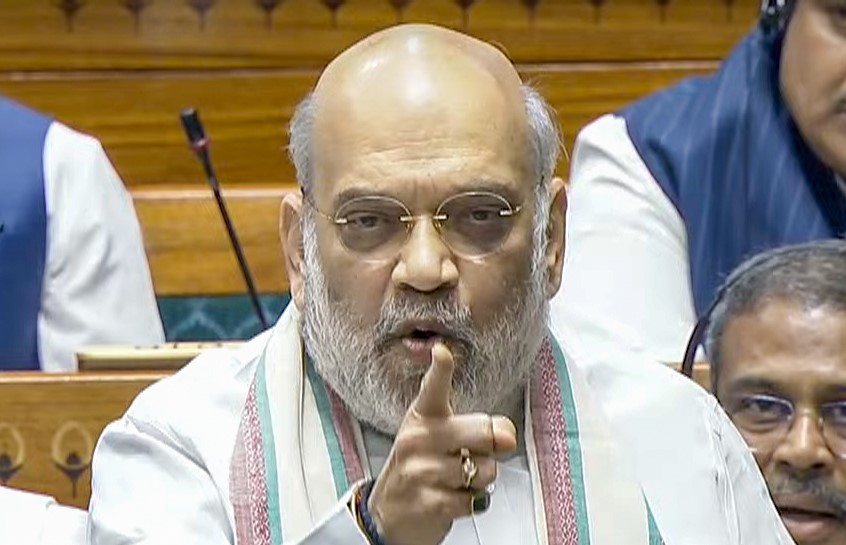Home Minister Amit Shah on Monday said the Congress appeared to give more weight to foreign narratives than to the statement of India’s External Affairs Minister, S. Jaishankar.
The debate followed Jaishankar’s address on the April 22 Pahalgam terror attack, during which he outlined India’s diplomatic and security response. Repeated interruptions by Opposition MPs, particularly from the Congress, prompted Shah to intervene.
“Do you not trust your own foreign minister, who has taken a constitutional oath?” Shah asked, responding to the heckling from the Opposition benches. He said that the Congress was undermining national institutions by giving more weight to international commentary than the government’s position.
“It’s unfortunate that they don’t believe what India’s foreign minister is saying but are quick to believe narratives from abroad. I understand that the word ‘foreign’ holds value in their party’s name — but that doesn’t mean it should override national interest,” Shah said.
Calling for order in the House, the Home Minister urged Speaker Om Birla to allow Jaishankar to complete his statement. “The Opposition’s constant interjections are uncalled for. We too can disrupt, and if our members begin doing that, it will be difficult to control,” he said.
Despite the disruptions, Jaishankar continued, saying that India’s global outreach had led to key diplomatic wins in the wake of the attack, which was claimed by The Resistance Front (TRF), a Lashkar-e-Taiba proxy. He noted that the United States had designated TRF as both a Foreign Terrorist Organisation and a Specially Designated Global Terrorist.
“This didn’t happen by chance,” Jaishankar said. “It’s the result of sustained diplomatic efforts and pressure across global platforms.”
He added that even previously shielded terror hubs in Pakistan — including Bahawalpur and Muridke — were now under international scrutiny. “We’ve seen a major shift. The world is no longer turning a blind eye to terrorism against India,” he said.
Citing support from groupings like Quad and BRICS, Jaishankar said there was growing consensus globally. “Even China, as part of BRICS, joined the condemnation of the Pahalgam attack,” he said.
He also referred to remarks by leaders from Germany, France and the European Union, who had supported India’s right to defend itself.
“India’s approach to national security is no longer viewed in isolation — it is backed by global validation,” Jaishankar said.
—IANS














